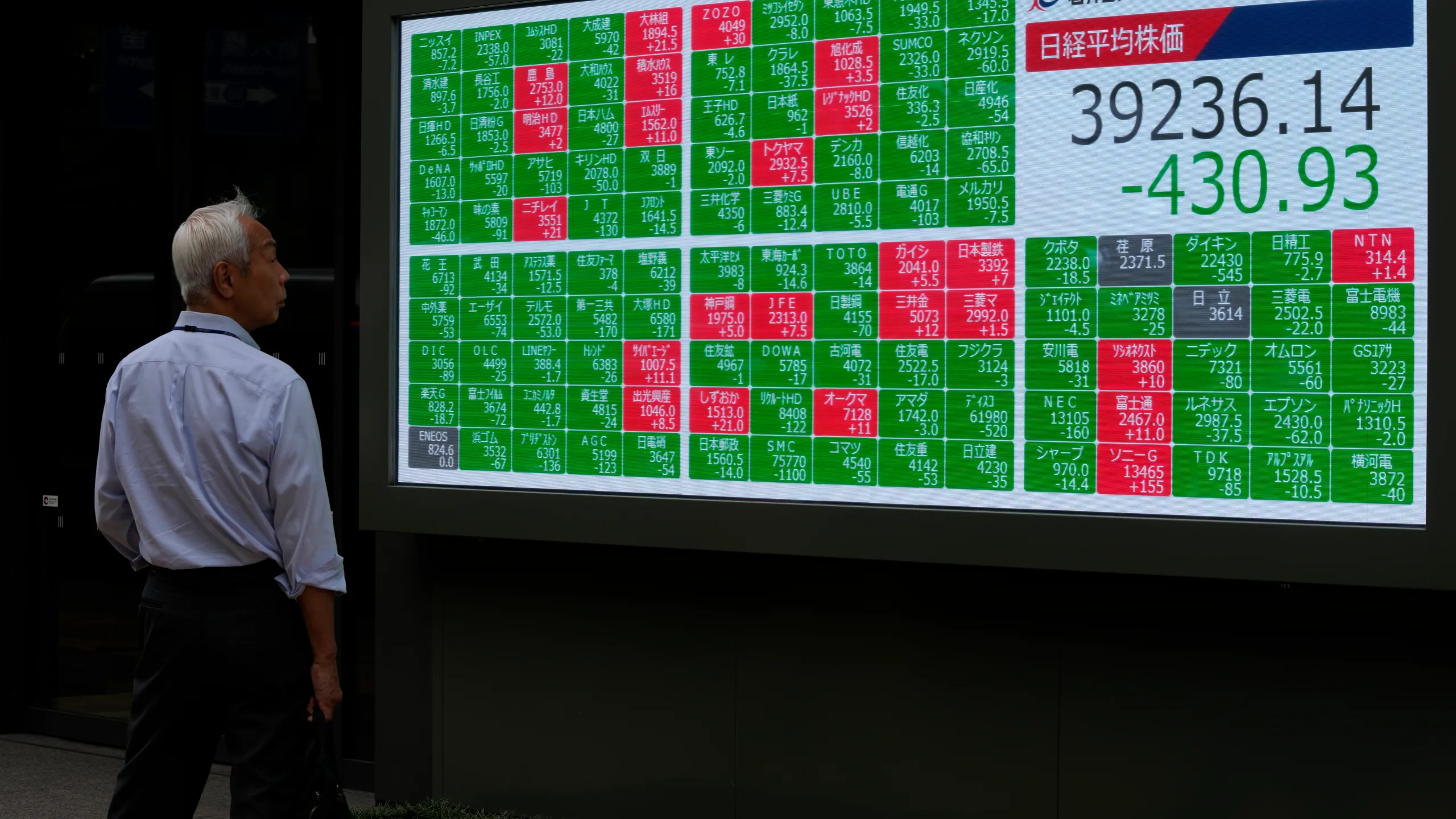Asian equities fell on Thursday following a turbulent session for U.S. stocks and bonds, as solid economic data in the United States complicated expectations of an upcoming rate cut from the Federal Reserve. Meanwhile, the Japanese yen strengthened after the Bank of Japan (BOJ) opted to maintain its benchmark interest rate amid rising economic uncertainties.
Stocks in Japan, Australia, and South Korea declined, contributing to a regional benchmark index heading for its weakest monthly performance since August 2023. Chinese markets displayed mixed results, with shares in mainland China fluctuating and those in Hong Kong showing gains. Investors responded to the latest Chinese manufacturing data, which showed its first expansionary reading since April.
The BOJ’s decision to hold rates came in the wake of heightened uncertainties about Japan’s economic outlook and concerns over the government’s stability after the ruling coalition suffered its weakest electoral outcome since 2009. The yen’s strength saw it move below 153 per dollar.
“As long as we have an inflationary environment in Japan, we continue to expect BOJ to gradually raise rates next year,” noted Chisa Kobayashi, Japan equity strategist at UBS SuMi Trust Wealth Management, during an interview on Bloomberg Television. “We expect the BOJ to hike next time in December, with another hike likely sometime next year.”
U.S. Market Influence and Corporate Earnings
U.S. equity futures slipped, impacted by post-market declines for Microsoft Corp. and Meta Platforms Inc. following their earnings reports. The dollar held steady, poised for its best monthly gain in over two years. The MSCI All-Country World Index also looked set for its largest monthly rise since April, while a measure of one-week implied volatility on the Bloomberg Dollar Spot Index rose to its highest since December 2022, indicating potential volatility in currency markets.
U.S. Treasury yields saw slight increases during Asian trading hours, while yields on Australian and New Zealand bonds advanced. Globally, bond markets hit a three-month low, influenced by robust U.S. economic growth in Q3, supported by increased consumer spending and defense outlays. Core inflation rose by 2.2%, aligning with the Federal Reserve’s target and pushing traders to scale back expectations for imminent policy easing.
Corporate and Regional Highlights
In Asia, Taiwan suspended stock trading due to an approaching typhoon. Earnings also dominated market attention, with Samsung Electronics Co. reporting weaker-than-expected chip profits, while BYD Co. in China saw its shares drop despite outpacing Tesla Inc. in quarterly revenue, as traders focused on disappointing net sales per vehicle.
Denso Corp.’s stock showed volatility after announcing a $2.9 billion stock buyback, while Toyota Industries Corp. simultaneously declared its intention to sell its stake in the company. Additionally, oil prices edged up, while gold saw a slight decline after hitting a recent peak, with demand buoyed by uncertainty surrounding next week’s U.S. presidential election and concerns over potential inflation.
Asian markets are expected to remain on edge, facing a combination of economic data, policy outlooks, and geopolitical events as traders weigh investment risks across global markets.





